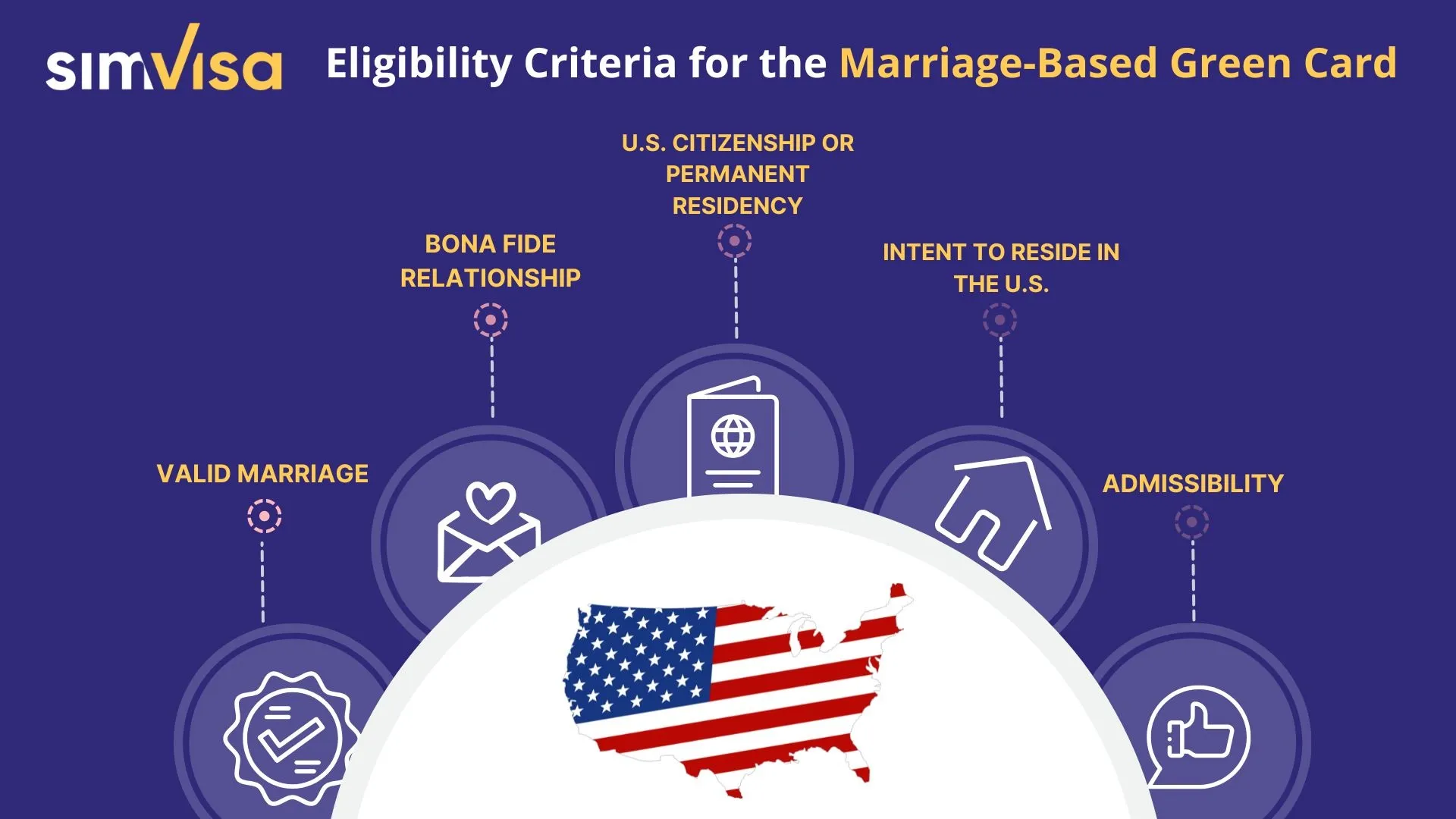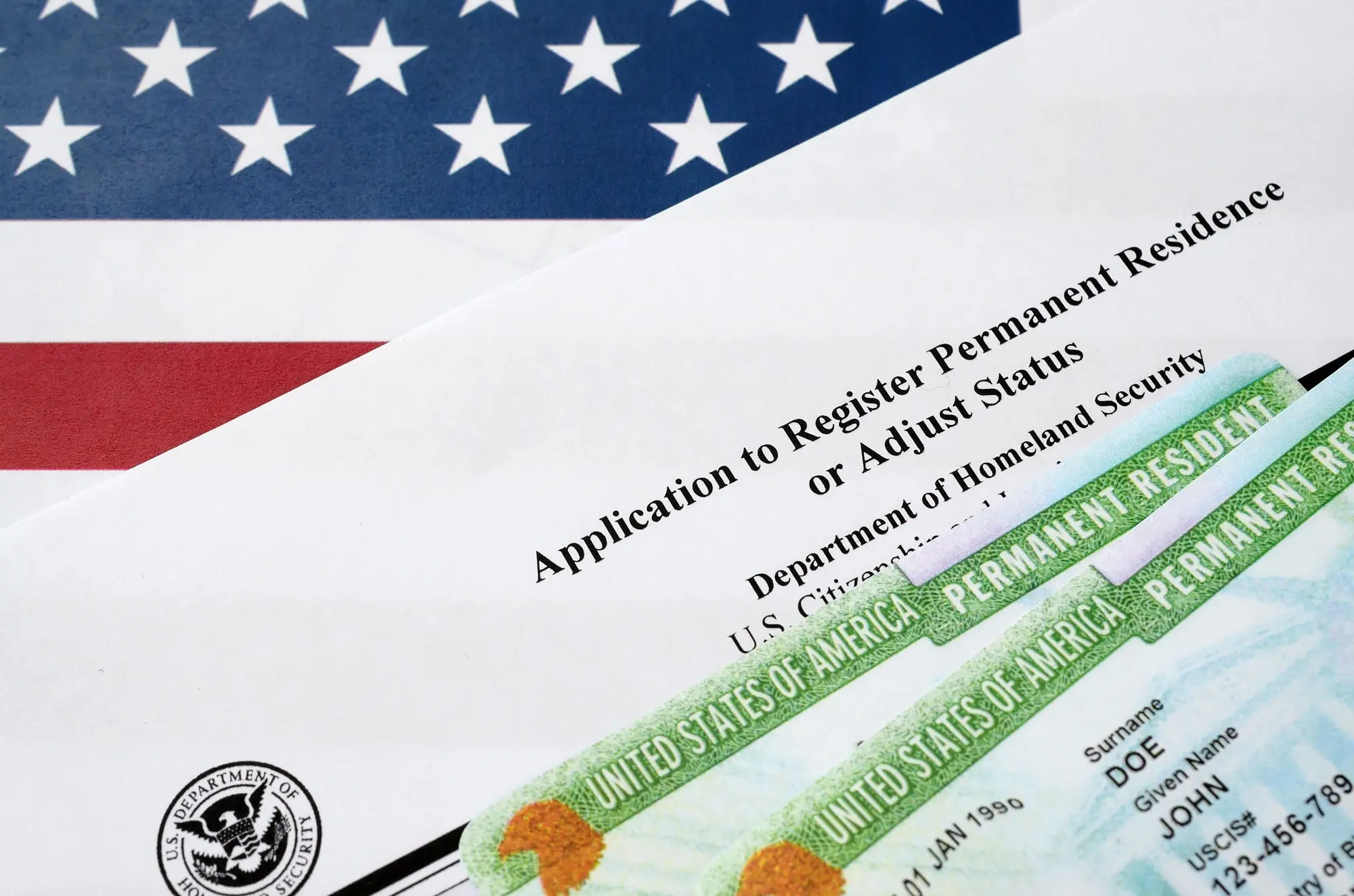Getting a marriage-based green card is one of the most common ways to gain lawful permanent resident status in the U.S. But just because it’s common doesn’t mean it’s simple. If you’re married to a U.S. citizen or a lawful permanent resident, you need to follow a specific, multi-step process.
This guide, developed with the experience and skill of a Chicago marriage visa lawyer, will walk you through each phase — from forms and fees to interviews and approvals — so you know exactly what to expect and how to get it right the first time.
What Is a Marriage Green Card?
A marriage green card (also known as a spouse visa or marriage-based visa) allows the foreign spouse of a U.S. citizen or lawful permanent resident to live and work permanently in the United States. It’s an official document that grants lawful permanent resident status, often seen as a pathway to full U.S. citizenship down the road.
Once approved, the immigrant spouse gains access to benefits like employment authorization, travel flexibility, and the right to adjust status or apply for naturalization after a few years.
Who Is Eligible for a Marriage Green Card

To get a marriage green card, your marriage must be legally valid and recognized where it was performed. That means a marriage certificate is required, and prior marriages must be legally terminated. You must also prove your marriage is bona fide, and not just for immigration purposes.
There are two types of sponsoring spouses:
- U.S. citizens
- Green card holders (aka lawful permanent residents)
This status affects how soon you can move forward and what hurdles you may face.
Step-by-Step Guide to Getting a Marriage Green Card
This step-by-step guide will walk you through exactly how to get a marriage-based green card — from filing the right forms to preparing for the interview — so you can stay together legally and confidently.
Step 1: Submit Form I-130 to Prove the Marriage Is Real

The process starts with the U.S. citizen or lawful permanent resident spouse filing Form I-130 (Petition for Alien Relative) with U.S. Citizenship and Immigration Services (USCIS). You can file it online or fill out the paper version. This officially tells the U.S. government: “Hey, I’m married to this person, and I want them to become a permanent resident”.
Along with Form I-130, include these essential documents:
- Your marriage certificate.
- Proof your marriage is legitimate (known as a bona fide relationship). This can include:
- Joint bank account statements
- Photos together with family or on trips
- Leases or mortgages with both names
- Messages, travel itineraries, or call logs
- Affidavits from friends or family who know your relationship
- Proof that any prior marriages were legally ended (divorce decrees or death certificates).
- Proof that the sponsoring spouse is a U.S. citizen or green card holder (birth certificate, naturalization certificate, green card, or U.S. passport).
Send everything to the correct USCIS address with the $675 filing fee (as of May 2025, but consult the USCIS fees page for up-to-date information). USCIS will respond with a receipt notice confirming they received your case. If filing online, the fee is $625.
Step 2: Wait for USCIS to Approve the I-130
Once USCIS receives your Form I-130, they will begin reviewing your relationship. If all looks good, they’ll send you an approval notice.
This step can take months, depending on the type of sponsor:
- If your spouse is a U.S. citizen, your case usually moves faster.
- If your spouse is a green card holder, you may need to wait for a visa number to become available.
Once approved, the next step depends on whether the foreign spouse is currently inside or outside the U.S.
Step 3: Are You in the U.S. or Abroad?
The next step depends on where your foreign spouse is.
If the foreign spouse is already in the U.S., you’ll move forward with Adjustment of Status (see Step 3A).
If the foreign spouse is outside the U.S., you’ll go through Consular Processing with the National Visa Center (NVC) and a U.S. embassy or consulate abroad (see Step 3B).
We've covered the differences between consular processing and adjustment of status in a separate article.
Step 3A: Apply for a Green Card Inside the U.S. (Adjustment of Status)

If the foreign spouse entered the U.S. legally, you can stay in the U.S. and apply for your green card without leaving the country.
You’ll submit Form I-485 (Application to Register Permanent Residence or Adjust Status) along with these:
- Form I-864 (Affidavit of Support) from your sponsoring spouse
- Form I-693 (Immigration Medical Exam) in a sealed envelope from a USCIS-approved doctor
- Proof of lawful entry (visa, I-94, etc.)
- Birth certificate and government ID
- Passport-style photos
- Filing fee of $1,440 (includes biometrics)
You can also add these optional forms:
- Form I-765 (Application for Employment Authorization) — to work while you wait.
- Form I-131 (Application for Advance Parole) — to travel without abandoning your application.
- They’re free both if filed together with I-485.
Once received, USCIS will send a receipt notice and schedule a biometrics appointment for fingerprinting. If you feel like this is getting too complicated, remember that you can always get help from an Adjustment of Status lawyer.
Step 3B: Apply for a Green Card Abroad (Consular Processing)

If the foreign spouse is outside the U.S., your approved I-130 is sent to the National Visa Center (NVC).
Here’s what happens next:
- The NVC assigns a case number
- You pay visa fees online
- Submit the DS-260 immigrant visa application with the Consular Electronic Application Center (CEAC)
- Upload your civil documents:
- Marriage certificate
- Birth certificate
- Passport copy
- Proof of relationship (photos, communication, etc.)
- Form I-864 (Affidavit of Support)
Then, the foreign spouse will attend a visa interview at the U.S. embassy or consulate in their country. You’ll also need a medical exam from an approved panel physician.
If all goes well, the visa is approved, and the spouse receives an immigrant visa to enter the U.S. as a lawful permanent resident.
Step 4: Attend the Green Card Interview
Whether applying in the U.S. or abroad, there’s usually a green card interview — the final step before approval.
Both spouses usually attend (unless it's consular processing).
The immigration officer or consular officer may ask:
- How you met
- Where you live
- What daily life looks like
- Details about each other’s families, birthdays, or routines
It’s not a trap — just a way to verify your bona fide marriage. Be honest and consistent.

Step 5: Receive Your Green Card
If your application is approved, congratulations!
You’ll get one of two types of green card depending on how long you’ve been married:
- Conditional Green Card: Given if you’ve been married for less than 2 years. It’s valid for 2 years, and you must file Form I-751 with your spouse before it expires to remove conditions and keep your green card.
- Permanent Green Card: Given if you’ve been married for 2 years or more. It’s valid for 10 years and only needs to be renewed before it expires — no extra paperwork about your marriage.
The physical green card arrives by mail a few weeks after approval.

Step 6: Maintain Your Status and Remove Conditions (If Applicable)
If you got a 2-year conditional green card, you’ll need to file Form I-751 (Petition to Remove Conditions) within 90 days before it expires. You’ll need to show you’re still married and living together.
Once approved, you’ll receive a permanent green card valid for 10 years.
If you’re married to a U.S. citizen, you can apply for naturalization (citizenship) after 3 years of having a green card instead of the usual 5.
Step 7: Watch for Updates and Requests from USCIS
USCIS may send a Request for Evidence (RFE) if anything is missing or unclear in your application. Don’t panic — just respond by the deadline with the required info.
Track your case status online using your receipt number.
Marriage Green Card Timeline: How Long Does It Take?
The processing time for marriage visas depends on whether your spouse is a U.S. citizen or green card holder, and whether you’re applying from inside or outside the U.S.
Here’s a rough breakdown:
- Adjustment of Status with U.S. citizen spouse: 12–20 months
- Consular processing with U.S. citizen spouse: 14–20 months
- With green card holder spouse: 24–36 months, depending on visa availability
Delays can occur — especially if immigration services request additional documents or evidence.
Simplify Your Marriage Visa Application with SimVisa
Getting a marriage-based green card is a big step, and you don’t want to take it alone. Mistakes or delays can cost you time and money.
At SimVisa, we help couples just like you avoid the guesswork. We’ll walk you through every step — from proving your bona fide marriage and submitting the correct forms, to preparing you for the interview and tracking your application.
Don’t risk going it alone — let SimVisa make the process smoother, faster, and less stressful. Contact us today to get personalized legal guidance.
FAQ
How much does it cost to file for a marriage green card in the U.S.?
The total cost depends on your situation, but for most applicants filing from within the U.S., the fees include:
— Form I-130 (Petition for Alien Relative): $675
— Form I-485 (Adjustment of Status): $1,440
— Medical Exam: $100–$500 (varies by doctor)
So, the typical total cost is around $2,100 to $2,400, not including optional forms or legal assistance.
How long does it typically take to obtain a marriage-based green card?
Processing time varies based on your case and where you're applying from:
— If married to a U.S. citizen and applying inside the U.S.: 12–20 months
— If applying from outside the U.S. (consular processing): 14–20 months
— If married to a green card holder: 24–36 months or longer, depending on visa availability
Keep in mind that delays can happen if USCIS requests more evidence or if interview wait times are long.
Do same-sex couples qualify for a marriage green card?
Yes! Gay couples have the same rights as opposite-sex couples when applying for a marriage-based green card. As long as your marriage is legally recognized in the place it was performed and meets all USCIS eligibility requirements, you can apply, regardless of gender.
What if my marriage ends after getting the green card?
If it ends after receiving your permanent resident status, it typically won’t affect your green card. But if it ends during the conditional period, you’ll need to prove the marriage was real.











